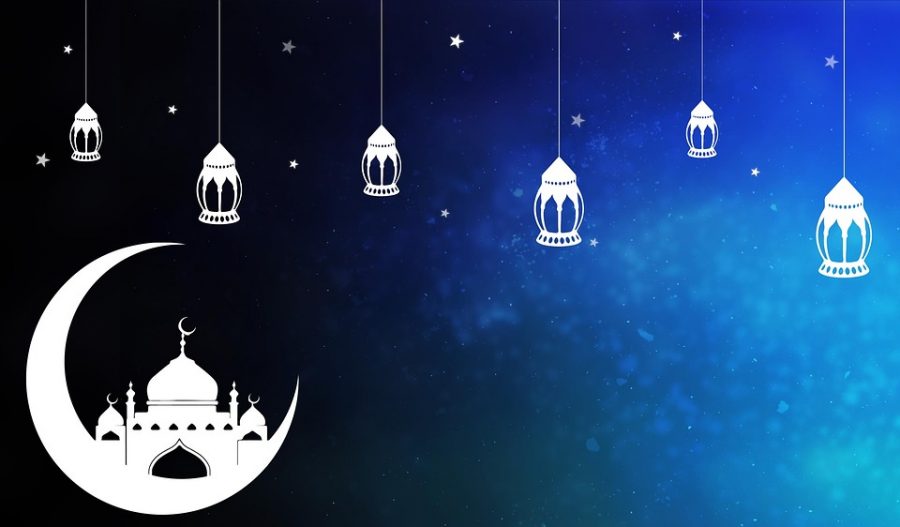Every year and throughout the seasons, Americans comes together to complain about the holidays.
Christmas is either too Christian, too secular, or, for me personally, too Hallmark. Halloween, especially in certain Christian environments, shifts between being perceived as a pointless dress-up holiday or a satanic holiday that shamelessly celebrates evil and high fructose corn syrup.
More often than not, these debates are centered only around Christian traditions and holidays. In many countries, especially in the United States, these holidays are exploited by advertisers to sell food and shiny plastic presents.
Although the U.S. has no official state religion, American society is explicitly and consistently Christian. We are one nation under God. Specifically, a Christian God with a flowing white beard and glowing white skin.
Given this cultural context, many American Christians know little to nothing about Islam or any religion that doesn’t feature Jesus as the main character. Therefore, despite the fact that there are 3.45 million Muslims in the United States and 1.8 billion Muslims worldwide who celebrate the holiday, American Christians know little about Ramadan.
This religious ignorance seems potentially dangerous considering the recent litany of religious violence across the globe; now more than ever, it seems important to learn about Ramadan.
To briefly summarize for those who are not aware, Ramadan is a traditional Muslim holiday that includes a month long period of fasting from sunup to sundown. It is a time to establish a deep connection with God, a time of self-reflection, and of the five pillars of Islam.
This year, Ramadan will begin on May 6 at sundown and end around June 4 (depending on the sighting of the moon of Shawwal, the 10 month of the Islamic calendar).
Celebrating Ramadan in America often means that while Muslims are going through the stress of fasting, American Christians carry on without any idea of what is happening.
Americans are expected to know the basic premises and values of Lent and Easter but are allowed to have no clue what Ramadan is, or what Ramadan means to Muslims.
Christians, particularly white American Christians, have the perpetual privilege of living in a country that acknowledges and supports their beliefs and traditions. In addition to being the most culturally relevant religion in the U.S., Christians are by far the largest religious group in the United States.
According to a 2016 Gallup poll, 74% of Americans identify with a Christian religion. Meanwhile, Muslims represent only 1% of the US population and all non-Christian faiths, including Islam, make up a mere 5%.
Due to this privilege of representation, the beginning of Ramadan is able to pass as just an aside on a monthly calendar, as inconsequential to the average American as Kwanza or National Hug a Drummer Day.
Perhaps part of the lack of American interest in Ramadan is not just due to Muslims being a religious minority, but also due to America’s inability to financially capitalize on the holiday.
It is hard to sell food when no one is going to eat it. Ramadan cannot be co-opted by advertisers like Christmas, is because of the small consumer base and the holiday’s inherent resistance to capitalist exploitation through its emphasis on charitable giving and piety.
The trend is fairly clear: Christian holidays are American consumerist holidays, non-Christian religious holidays are not mainstream American.
However, the potential risk with the clear connection between “Christian” and “American” is the proceeding assumption that non-Christian religions and traditions are either “less American,” wholly “un-American” or, as anti-immigrant rhetoric suggests, “evil.”
This assumption, a Molotov cocktail, a concoction of one part implicit racism, one part religious intolerance, has created a system where the hijab is seen as the mark of an alien and Islam is seen as a religion of terrorism religion.
These labels show the dire need to learn and respect Islam. Violence feeds off of our own ignorance and our habit of spreading misinformation.
The deaths in Sri Lanka, New Zealand and most recently San Diego should be a warning against religious ignorance of any variety.
It is ignorance that allows Christians to be unaware of the similarities between Islam and Christianity, it is ignorance that sets the foundation for dehumanization and murder.
This year I have decided to participate in Ramadan to get a better idea of what the holiday looks like and what it means to the people who participate in it. It was with a grumbling stomach that I stared longingly at all the Cliff Bars and dried mango in my 9:30 class.
But what is most noticeable about doing Ramadan at SPU is the loneliness. Students, even when I tell them that I am participating in Ramadan and for what reasons, seem bewildered at the fact that there are Muslim holidays.
Though I am only fasting with the intention to learn about Islam and have little experience with Ramadan, what I have found is that while it is hard to slog through 16 credits with an empty stomach, it is much harder when no one cares.















































































